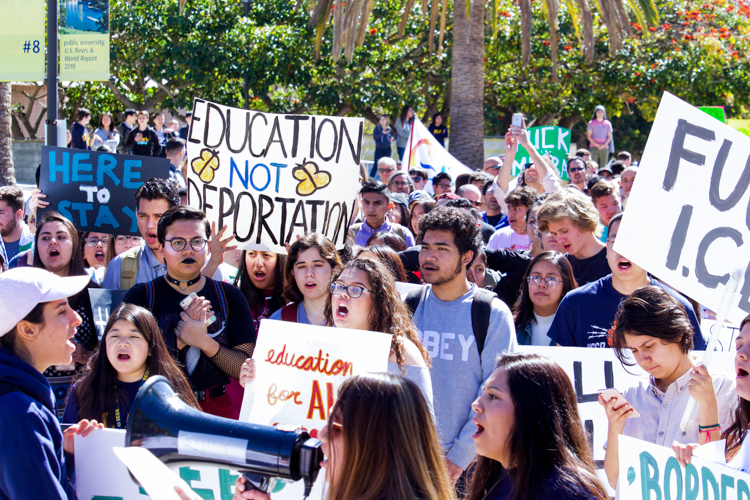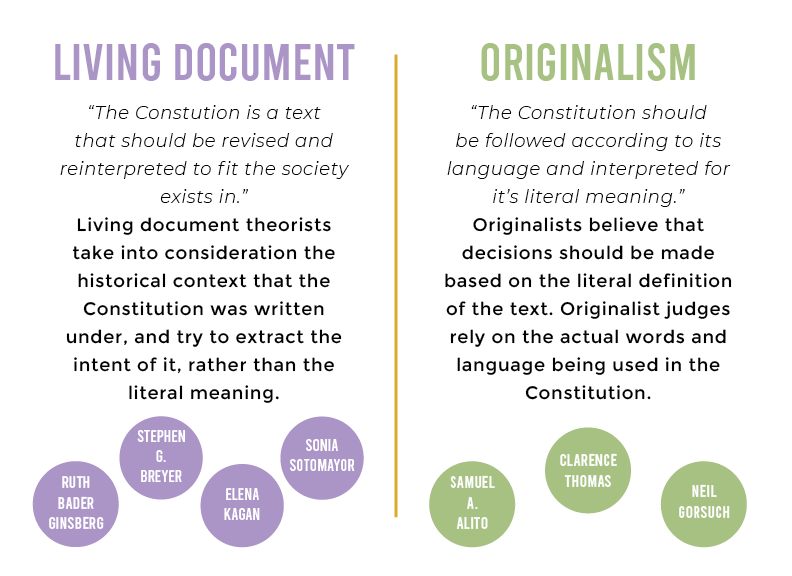
Ariel Andres
Contributing Writer
By the end of June 2020, the Supreme Court will make its final decision as to whether President Trump is legally able to rescind the Deferred Action for Childhood Arrivals (DACA) program set in place during 2012 by the Obama administration. Paul Spickard, a professor from the UC Santa Barbara history department, sheds some light on how the court justices may vote during this landmark case in an interview with The Bottom Line.
One may think that the court’s decision will simply boil down to which Supreme Court justices are conservative and which ones are liberal. Although this is often the trend for the liberal wing of the Supreme Court, professor Spickard points out that there are other philosophies which go beyond party lines that help guide the judicial choices justices make.
One such philosophy is living constitutionalism, which states that the Constitution should be viewed as a dynamic document that changes over time and molds to fit the context of the current era. The four liberal court justices, Ruth Bader Ginsburg, Stephen G. Breyer, Sonia Sotomayor, and Elena Kagan, fall under this category, and so they would most likely be in favor of DACA.
The antithesis to living constitutionalism is textualism and originalism. Textualism heavily weighs what the exact words of the Constitution are, but it doesn’t focus on what the intent behind the words are at the time they were written. Former Chief Justice Oliver Wendell Holmes Jr. said, “We do not inquire what the legislature meant; we ask only what the statutes mean.”

An argument brought up against DACA is that the Constitution should not have allowed President Obama to enact that immigration law. Such power is reserved for Congress, which in turn makes DACA illegal. Justice Samuel A. Alito is considered to be a textualist and his line of questioning during the oral arguments that took place during November 2019 suggests that he will side with President Trump.
Originalism also pays close attention to the words written down, but it has a strict interpretation of the Constitution through the lens of the original intent of the Founding Fathers. As professor Spickard put it, it is like “wrapping the aura of the Founding Fathers around the Constitution.” That aura remains in place regardless of the modern-day context, even when it is opposed to long-standing legal precedent.
For instance, the District of Columbia v. Heller case demonstrated an originalist view of the Second Amendment. An originalist would look back to the reason for why the Founding Fathers wrote it: to form militias that would protect citizens from a potentially dangerous standing army. Former Justice Antonin Scolia argued that without arming citizens, they would not be able to form militias, and the Second Amendment therefore protects the rights of every individual to possess firearms.
The current Supreme Court consists of two justices that are generally thought to be originalists: Justices Clarence Thomas and Neil M. Gorsuch. professor Spickard suggested that since the Constitution does not go into details about immigration beyond the citizenship clause, they would vote in favor of the president because they respect the executive powers granted by the Constitution.
The last two conservative justices, Justices John G. Roberts and Brett M. Kavanaugh, are the ones most likely to flip, according to professor Spickard.

Although Roberts has prominent conservative views, professor Spickard pointed out that he has voted alongside liberal justices in several cases. When President Trump wanted to include a question about citizenship on the U.S. census, Justice Roberts voted against it. Moreover, he defended the Affordable Care Act set in place by Obama when the president tried to dismantle it.
It is clear that he has shown a willingness to go beyond party lines when considering significant cases. In regards to Justice Kavanaugh, there is no history of his philosophy in action within the Court, and so it is more difficult to predict what his decision may be.
Ultimately, professor Spickard said, “I think that people are going to end up voting with their heart on this one.” He questions whether the Court should let “gratuitous meanness” govern policy. That is, there is no real benefit to deporting hundreds of thousands of DACA recipients.
Essentially, it has to do with an argument surrounding common decency. DACA recipients occupy all kinds of essential jobs, from lawyers to doctors. Currently, there are over 29,000 DACA recipients who work as healthcare professionals, and in the midst of the COVID-19 pandemic, deporting them would severely limit the ability to battle this disease. Uprooting them from our society would ruin their livelihoods and in turn ours.










